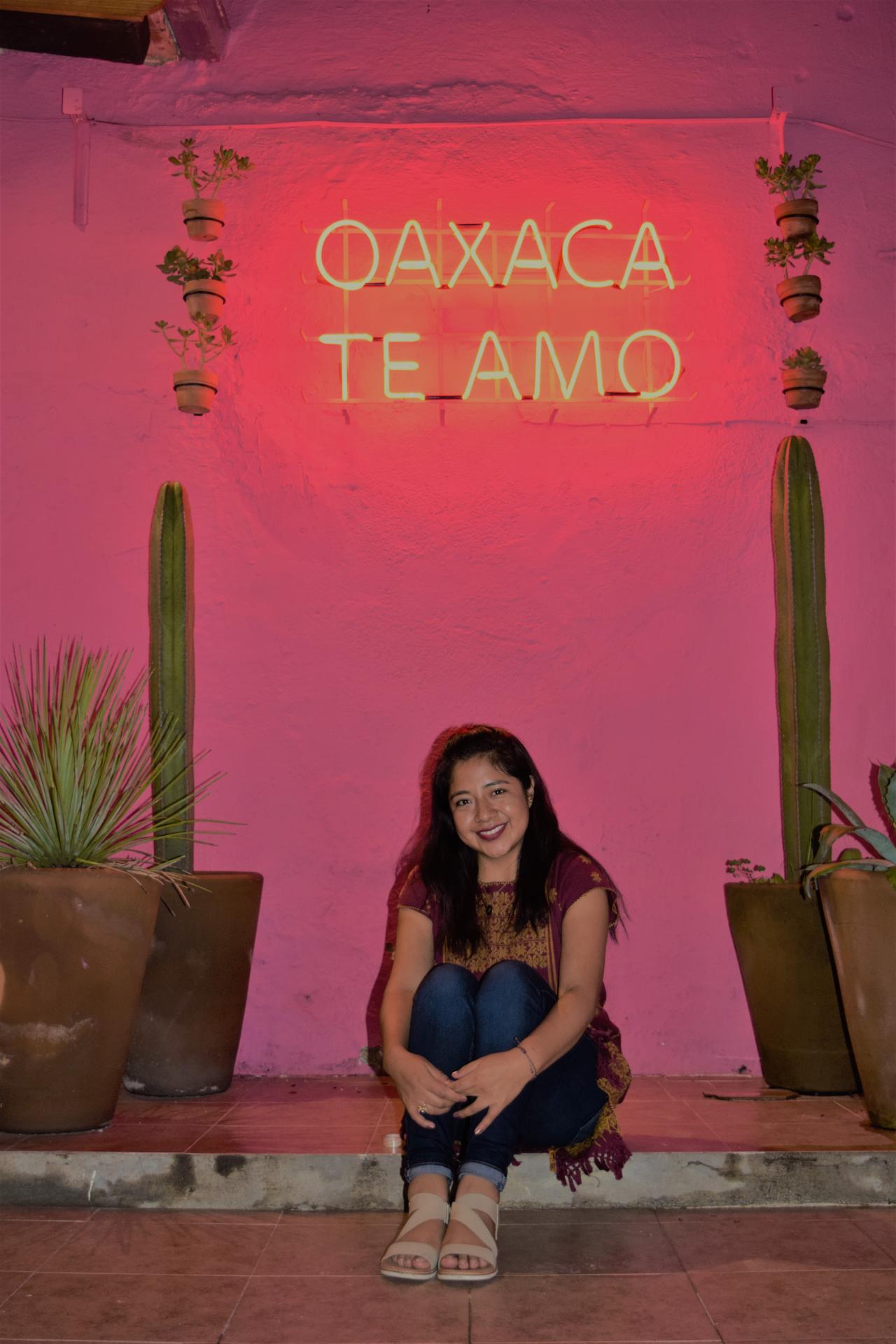From an early age, Elvia Rodríguez (Mixtec) always had a deep interest in social and international issues. Originally from Santo Tomás Ocotepec, a Mixtec town in Oaxaca, Mexico, she grew up surrounded by beautiful ocote trees, but also by the migration phenomenon that led many of the people of her community to migrate to cities in Mexico and the United States.
Elvia says that her community “still maintain[s] the connection with their culture, the language (more than half of the population speaks Mixtec), food, and traditions, especially with the family.” She also highlights the care that her community gives to the place where they live. “My community is part of the territory. They do not exploit it only to benefit from its resources.” Despite this, Elvia does not idealize the place where she lives, because she knows that there are issues that they are still learning about, for example, the problem of gender-based violence.
Elvia studied International Relations, which allowed her to learn about legal, economic, social, and political issues and helped her to be more aware and critical about the context of Indigenous Peoples in Mexico and elsewhere in the world. Being a fearless, self-confident, and transparent person, Elvia has worked for the United Nations in Mexico and other civil society organizations in Mexico and the United States.
One of Elvia’s motivations for joining the Cultural Survival team, as Community Media Program Assistant, is to meet and work with professionals from other Indigenous Peoples, to hear their personal and professional experiences as well as their visions of the present and the future. She says, “For me, Cultural Survival is a network that has a holistic view of social problems, especially the inequalities and challenges that Indigenous Peoples face every day, not only in Latin America, but also in other regions of the world.”

By coming to Cultural Survival, Elvia is excited to support issues related to the art of Indigenous Peoples, as well as the revitalization, strengthening, and promotion of their languages, legends, and stories. Elvia also has a great interest in the customary law of Indigenous Peoples, where she has gained professional experience. “It is one of the most important elements for people to be able to live autonomously, without fear of being violated, exploited, or displaced, so that we have real decision-making power,” she says.
Elvia is proud to be a Mixtec woman, and she lives her identity in the spaces in which she lives and works. “I [was] not forced to reject my culture; therefore, I speak Mixtec whenever I have the opportunity. My Mixtec worldview is also visible in my way of interacting and addressing people in different environments. In addition, I wear the huipil of my people with great pride. I exercise my rights as a Mixtec woman thanks to my parents, grandparents, and community, and I raise my voice when I feel vulnerable and violated, because I have learned from the generation of adults who went through complex situations and who have fought for the rights that we have now.”
Elvia’s admiration for her Elders especially includes her mother and her two grandmothers. “With their example, they forged the foundations of the woman I am today. They were brave, hard-working, and resilient in difficult times,” she says. Elvia says that her ancestors dreamed of being what she is now, and that is why she always honors her mother because she has always listened to her and supported her in her dreams and adventures.
In addition to her ancestors, Elvia admires other women who have trusted her and who have been crucial in different stages of her personal and professional life. “The list of women I admire and who have contributed to my life is very long,” she says. “I am deeply grateful to all of them because they are the greatest example of the impact of helping and listening to women.”
